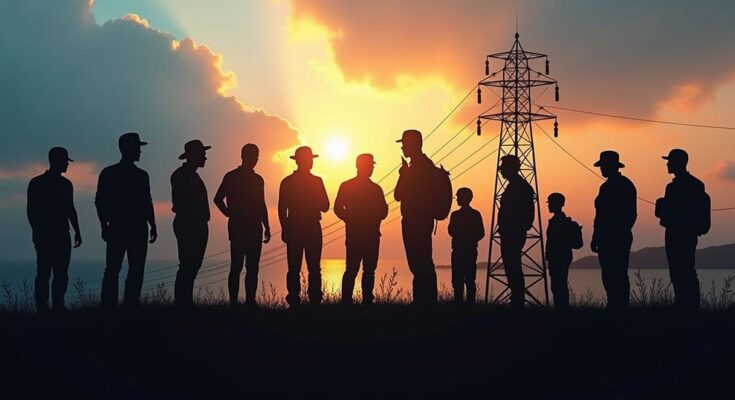The Gallup Global Safety Report 2024 highlights El Salvador’s rising perceptions of safety, contrasted sharply with declining security feelings in Chile and Ecuador. Factors like organized crime and government responses are pivotal in shaping these perceptions, while human rights concerns emerge amid enforcement measures in El Salvador.
The Gallup Global Safety Report 2024 reveals significant variations in perceptions of safety across Latin America and the Caribbean, a region that despite showing gradual improvement over the past three years, still holds one of the lowest rankings for citizen security nationally. The report examines citizens’ experiences with violent crime, their overall feelings of safety, and trust in law enforcement within the past year, positioning the region at the bottom compared to global respondents from 140 countries. Factors such as drug trafficking, organized crime, and widespread corruption perpetuate this insecurity. El Salvador has received notable recognition for its improvement, with 88% of citizens stating they feel safe walking alone at night, and a Law and Order score of 89. This surge is attributed to stringent policies enacted by President Nayib Bukele since 2022, including a prolonged state of emergency that has allowed law enforcement to operate with increased authority. However, such measures have also led to severe human rights abuses, raising concerns about democratic stability. In contrast, Chile faces an alarming decline in security perceptions, with only 36% of citizens feeling safe walking at night. The rise in organized crime, specifically due to the influence of transnational gangs like Tren de Aragua, has fueled public fear and a lack of trust in security forces. The frequency of severe crimes, such as kidnappings and homicides, has noticeably increased, prompting a call for more vigorous government intervention. Ecuador presents an equally troubling scenario, with only 27% of its citizens feeling secure in public spaces. Once considered a peaceful buffer between drug trafficking countries, Ecuador now grapples with escalating violence. The growing influence of drug cartels and a surge in gang-related crime have rendered parts of the country particularly dangerous, as seen in Guayas province, where public safety issues have reached alarming levels. In summary, while El Salvador appears to be making strides in citizen security perceptions, the overall trend in the region remains mixed, with countries such as Chile and Ecuador facing serious security challenges, underscoring the need for effective law enforcement and community safety strategies.
The Gallup Global Safety Report serves as a crucial evaluation tool for measuring citizens’ perceptions of safety globally. This year’s report illustrates that Latin America and the Caribbean remains a region plagued with security issues, despite showing some improvements over recent years. The report captures a range of experiences, including violent crime rates and citizens’ trust in local law enforcement.
The findings from the Gallup Global Safety Report 2024 highlight a stark contrast in citizen perceptions of safety across Latin America and the Caribbean. El Salvador stands out for notable improvements resulting from stringent policy measures, while Chile and Ecuador face significant challenges and declining trust in public safety. These observations suggest that while progress is possible, serious attention must remain focused on addressing the underlying issues of crime and governance across the region.
Original Source: insightcrime.org




